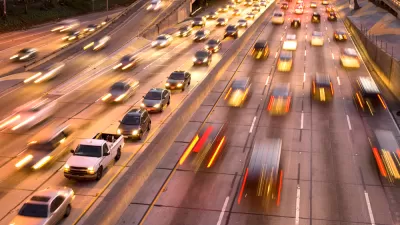How can planners approach the emotions and psychology of urban stakeholders? Planning journalist Josh Stephens speaks with Psychology Today to give psychology professionals a glimpse into how planners think.

"Kids don’t question whether their environment is ideal or whether it was built for the right reasons any more than they question whether their native language or their religion is ideal. Our places are built into us and they influence us so powerfully that we don’t even know they’re influencing us. And hometowns aren’t just buildings and streets. They are also cultural norms: values, customs, ideas, styles, ideologies, and relationships. We approach the rest of the world according to those cultural norms."
"YIMBYism also provides a crucial counterweight to the power of homeowners, which has accumulated unchallenged for decades. Homeowners dominate urban politics because they are relatively sedentary, relatively wealthy, and relatively white (and often benefited from zoning laws and patterns that favor whiteness). They have financial, aesthetic, and sometimes racially motivated interests in maintaining the status quo—meaning under-production of housing. They are the ones who have traditionally dominated public discourse."
FULL STORY: The Psychology of The Urban Mystique

Alabama: Trump Terminates Settlements for Black Communities Harmed By Raw Sewage
Trump deemed the landmark civil rights agreement “illegal DEI and environmental justice policy.”

Planetizen Federal Action Tracker
A weekly monitor of how Trump’s orders and actions are impacting planners and planning in America.

The 120 Year Old Tiny Home Villages That Sheltered San Francisco’s Earthquake Refugees
More than a century ago, San Francisco mobilized to house thousands of residents displaced by the 1906 earthquake. Could their strategy offer a model for the present?

In Both Crashes and Crime, Public Transportation is Far Safer than Driving
Contrary to popular assumptions, public transportation has far lower crash and crime rates than automobile travel. For safer communities, improve and encourage transit travel.

Report: Zoning Reforms Should Complement Nashville’s Ambitious Transit Plan
Without reform, restrictive zoning codes will limit the impact of the city’s planned transit expansion and could exclude some of the residents who depend on transit the most.

Judge Orders Release of Frozen IRA, IIJA Funding
The decision is a victory for environmental groups who charged that freezing funds for critical infrastructure and disaster response programs caused “real and irreparable harm” to communities.
Urban Design for Planners 1: Software Tools
This six-course series explores essential urban design concepts using open source software and equips planners with the tools they need to participate fully in the urban design process.
Planning for Universal Design
Learn the tools for implementing Universal Design in planning regulations.
Clanton & Associates, Inc.
Jessamine County Fiscal Court
Institute for Housing and Urban Development Studies (IHS)
City of Grandview
Harvard GSD Executive Education
Toledo-Lucas County Plan Commissions
Salt Lake City
NYU Wagner Graduate School of Public Service





























